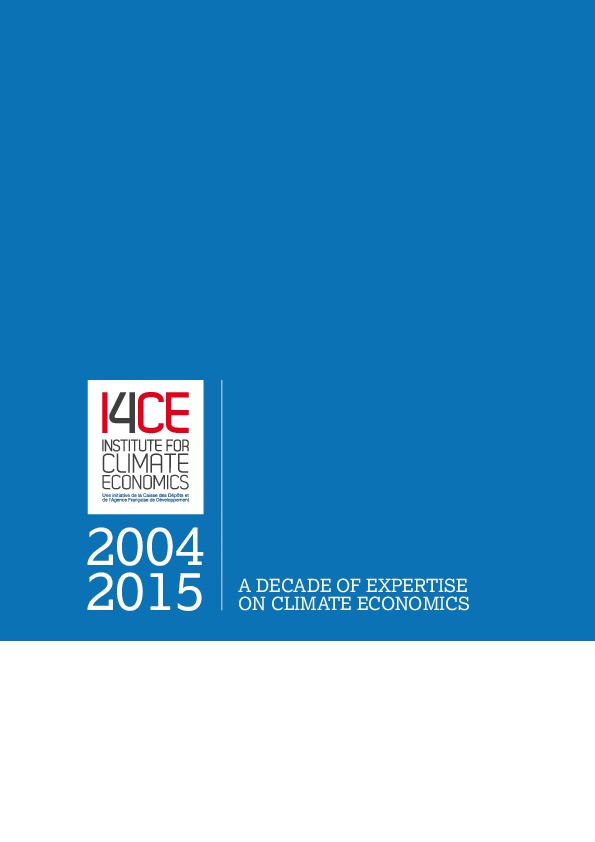2004 – 2015: A decade of expertise on climate economics
I4CE – the Institute for Climate Economics is an initiative of the Caisse des Dépôts, which continues to support us, and the Agence Française de Développement, which has joined this project, giving the Institute a strong international dimension.
The two major French public financial institutions are thus joining forces to create a real think tank, open to other partnerships.
From the outset, I4CE – the Institute for Climate Economics – benefits from the expertise and reputation which CDC Climat Research has acquired over ten years through our publicly available research, our discussions with public and private decision makers, and our research partnerships with other teams in France, Europe and around the world. I4CE aims at strengthening this independent economic expertise and increasing its influence.
The creation of I4CE in 2015 is a step towards creating an agenda of solutions for the climate. We hope that our work will feed into efforts by France and international negotiators to reach an agreement in Paris in December. However, we have long believed that the transition towards a ‘decarbonised’ economy which is resilient to climate change does not depend solely upon work by governments.
We believe that three other categories of stakeholders are just as essential for ensuring that this change is successful:
- the industrial sector, and the energy sector in particular, the speed of transformation of which will depend greatly upon the inclusion of a carbon price in its model;
- the finance sector which now must incorporate the 2°C objective into the way in which it allocates capital;
- regional stakeholders which decide on the future of cities, agriculture and forestry.
We have developed and organised our research programme for the coming years around these three areas, with the aim of providing our partners with the keys to understanding and decision making, acting as a meeting point for the best academic work and the constraints of political and economic action.
This report will give you an overview of our activities and ways of working.

